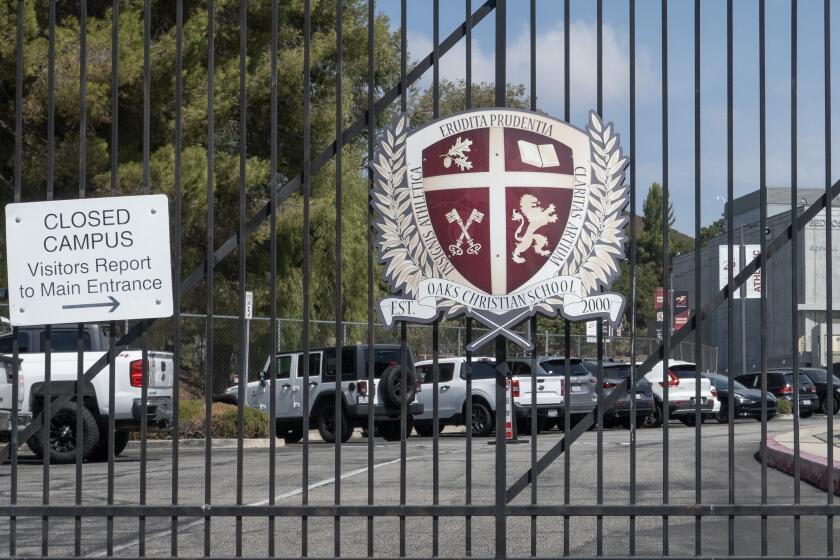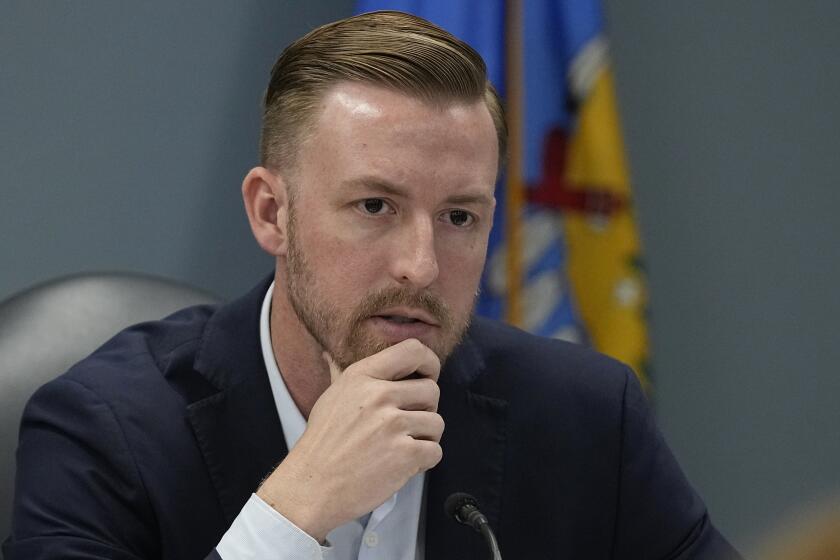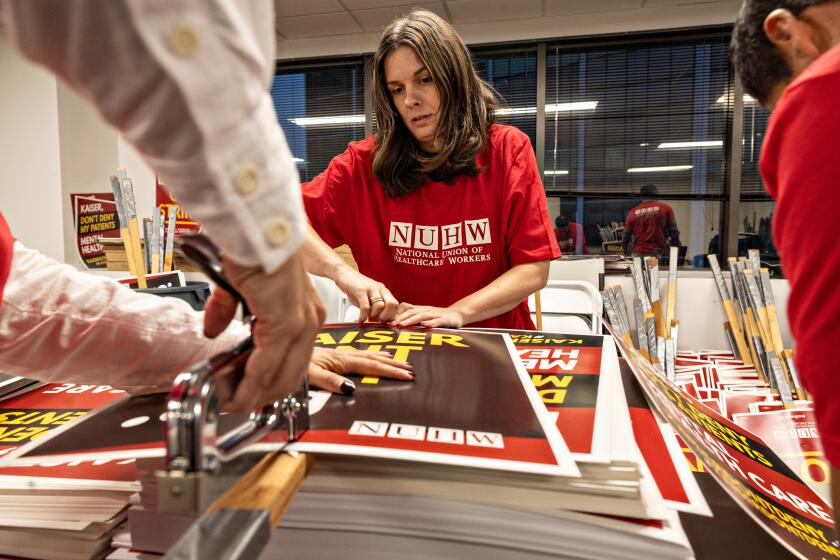Words to the Wise on Teacher Involvement
In its recent contract settlement with the Los Angeles Unified School District, the United Teachers of Los Angeles has taken a major step toward its long-cherished goal of increasing the teachers’ role in local school-site decision-making. The contract provision that establishes school councils composed of 50% teachers, with authority to make decisions that cannot be vetoed by the school principal, could usher in a new era in management for this huge, bureaucratically centralized system.
Business leaders realized some time ago that involving employees in organizational decision-making is a powerful way to regenerate employee performance and satisfaction, thereby improving productivity. Smaller school districts have begun to experiment with shared decision-making to reduce tensions between teachers and administrators and in forging new solutions to seemingly intractable problems.
Four years ago, in anticipation of the movement toward school-based decision-making, the administrators and teachers of the Corinne A. Seeds University Elementary School, the laboratory school of UCLA’s Graduate School of Education, began exploring how to involve teachers in decision-making as a means of reorganizing our school and, thereby, improving the educational program. What we have learned should be instructive to those developing the Los Angeles school district’s participative management program.
We have learned that involving teachers in decision-making produces powerful positive outcomes in the classroom and for the school as a whole. The most important gain has been better decisions that incorporate the creativity and thoughtfulness of many people. It makes sense that the experiences of many educators at a school will generate more workable options than the judgments of a single administrator or a central administrative unit.
There are other advantages. When teachers participate in making school-wide decisions they become more knowledgeable about the choices possible and come to understand the interwoven complexities of running a school. Teachers assume a greater sense of responsibility and accountability for carrying out decisions they have helped shape. By locating decision-making at the school site, administrators and teachers can focus their attention on solving problems that are unique to their specific situation. There is no question that our effective reorganizing efforts at Seeds have benefitted greatly from the teacher involvement.
However, such teacher involvement did not occur easily or without effort. And our experience is consistent with what others have learned when they have tried this approach.
The following four issues must be carefully addressed if the schools and school district are to reap the benefits of teacher involvement.
Participative decision-making requires lots of time from many people. When more people participate in decisions about critical instructional programs, the curriculum or how to spend limited funds, time must be made available for information sharing, for arguing, for developing and agreeing on solutions. Such problems cannot be dealt with in weekly 45-minute meetings. The divergent interests of parents, teachers and administrators cannot be accommodated on the run.
Collaborative problem-solving skills and attitudes must be nurtured. Many teachers,who are accustomed to their own self-contained classrooms, have limited experience in working with others to solve school-wide problems. Few have professional training that prepares them for participating in continuing decision-making and in the long-range planning process.
Conflict resolution techniques must be developed. When administrators, teachers and parents interact to resolve problems that have important consequences, there is an inevitable increase in the level of interpersonal conflict. All participants need to learn how to share ideas and disagree without resorting to personal attacks and interest-group politics. They need to learn how to express and receive criticism in ways that further constructive decision-making without creating destructive polarization. Formats for negotiations and appeals must be worked out.
Finally, the role of the administrator must be redefined. Administrators who are accustomed to managing primarily through the authority of their position must become able to work cooperatively through the efforts of others. They must know how to listen, to genuinely respect divergent opinions and to encourage others to exert leadership. They must be highly skilled at forging true consensus rather than settling for temporary compromise.
The Los Angeles Unified School District has a participative management scheme that could have significant local and national impact. Realizing this potential, however, will depend on whether the district provides the support to ensure its effective implementation.
More to Read
Sign up for Essential California
The most important California stories and recommendations in your inbox every morning.
You may occasionally receive promotional content from the Los Angeles Times.










